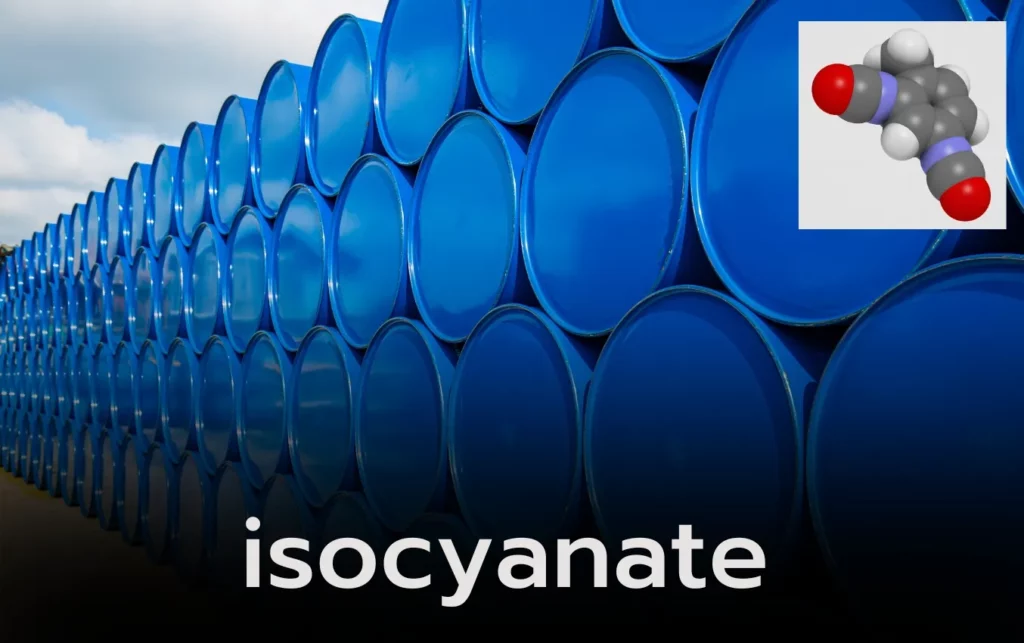cyanate
With their reactivity and versatility, isocyanates are vital chemicals in various industries, including automotive and construction. In this blog post, we explore into the world of isocyanates, exploring their importance in manufacturing processes and their relation to mechanics. From spray painting in auto body shops to the handling of isocyanate-based materials, understanding the risks and safety measures associated with these compounds is crucial for maintaining a safe working environment. Join us as we uncover the key aspects of isocyanates and their impact on the mechanics industry.
Table of Contents
- What Are Isocyanates?
- Chemical Properties
- Industrial Applications
- Importance in Various Industries
- Automotive Sector
- Building Insulation and Energy Efficiency
- How Isocyanates Relate to Mechanics
- Spray Painting and Coatings
- Handling Isocyanate-Based Materials
- Health and Safety Concerns
- Respiratory Risks
- Skin Irritation and Sensitization
- Safety Measures
- Protection: The Role of Nitrile Gloves
- Proper Ventilation and Training

What Are Isocyanates?
While often overlooked, isocyanates are imperative chemicals used in various industries for a range of applications. These reactive compounds are crucial in the production of foams, fibers, coatings, and elastomers.
Chemical Properties
One unique characteristic of isocyanates is their high reactivity and low molecular weight. This makes them ideal for applications requiring quick curing and strong adhesion properties.
Industrial Applications
Properties of isocyanates such as their versatility and fast curing make them valuable in industries like automotive manufacturing and building insulation. For instance, in the automotive sector, isocyanates are used in autobody repair and the creation of energy-efficient insulation materials.
Importance in Various Industries
Automotive Sector
To automotive professionals, isocyanates play a vital role in autobody repair. Ensuring the durability and aesthetic appeal of vehicles, isocyanates are commonly used in spray painting processes and coatings for automotive applications. Mechanics must be cautious in handling these chemicals to prevent health risks associated with exposure.
Building Insulation and Energy Efficiency
For building insulation materials, isocyanates contribute significantly to enhancing energy efficiency. By utilizing isocyanate-based foams in insulation products, structures can improve their thermal performance, reducing energy consumption and costs for heating and cooling systems. With proper installation and maintenance, buildings can benefit greatly from the efficiency that isocyanates offer.
How Isocyanates Relate to Mechanics
Spray Painting and Coatings
The automotive industry heavily relies on isocyanates for spray painting processes in auto body shops and the use of materials coated with paints and varnishes containing isocyanates. These chemicals are crucial for achieving durable and high-quality finishes on vehicles.
Handling Isocyanate-Based Materials
Handling of isocyanate-based foams during vehicle repairs and manufacturing is a common practice in the automotive sector. Mechanics and professionals must be cautious while working with these materials to prevent exposure-related health issues and ensure workplace safety.
Understanding the properties and applications of isocyanates is crucial for mechanics to safely and effectively utilize these chemicals in their daily tasks. By following recommended safety measures and protocols, mechanics can reduce the risks associated with isocyanate exposure and maintain a healthy work environment.
Health and Safety Concerns
Respiratory Risks
Keep in mind that exposure to isocyanates can lead to significant respiratory issues, such as asthma and bronchitis. Therefore, it is crucial for mechanics to implement proper safety measures to minimize the risk of inhaling these harmful chemicals.
Skin Irritation and Sensitization
To protect against skin irritation and sensitization caused by isocyanates, it is important for mechanics to wear appropriate personal protective equipment, such as gloves, to prevent direct contact with these hazardous substances. Ensuring prompt and thorough skin cleansing after exposure is also important in reducing the risk of adverse skin reactions.
With regular training on handling protocols and emergency response procedures, mechanics can enhance their awareness of the potential risks associated with isocyanates. By following strict safety guidelines and utilizing effective protective measures, professionals in the automotive industry can safeguard their health and well-being while working with these reactive chemicals.
Safety Measures
Protection: The Role of Nitrile Gloves
Using appropriate protective gear is crucial when handling isocyanates, and nitrile gloves are particularly effective.
- Why Nitrile?: Nitrile gloves offer superior chemical resistance compared to latex gloves, making them ideal for handling isocyanates.
- Thickness: Thicker gloves provide better protection; choose the appropriate thickness based on the level and duration of exposure.
- Fit: Ensure the gloves fit well to avoid any gaps that could allow chemicals to come into contact with the skin.
Proper Ventilation and Training
For mechanics and professionals working with isocyanates, ensuring proper ventilation in workspaces is crucial to minimizing the risk of health complications associated with these chemicals. Additionally, regular training on handling and emergency response protocols is crucial to equip individuals with the knowledge and skills needed to handle isocyanates safely.
For instance, a well-ventilated work environment helps to reduce the concentration of isocyanates in the air, lowering the chances of respiratory problems and skin irritations. Proper training not only enhances awareness of the risks involved but also provides guidance on how to respond effectively in case of accidents or exposure.
Hence, understanding the properties and applications of isocyanates is crucial for mechanics and professionals in related fields to maintain safety and efficiency in their work environments. By being aware of the potential health risks associated with isocyanate exposure and implementing safety measures, such as using personal protective equipment and ensuring proper ventilation, mechanics can continue to excel in their work while prioritizing their well-being. It is important to stay informed and proactive when it comes to handling isocyanates in the automotive and manufacturing industries.
